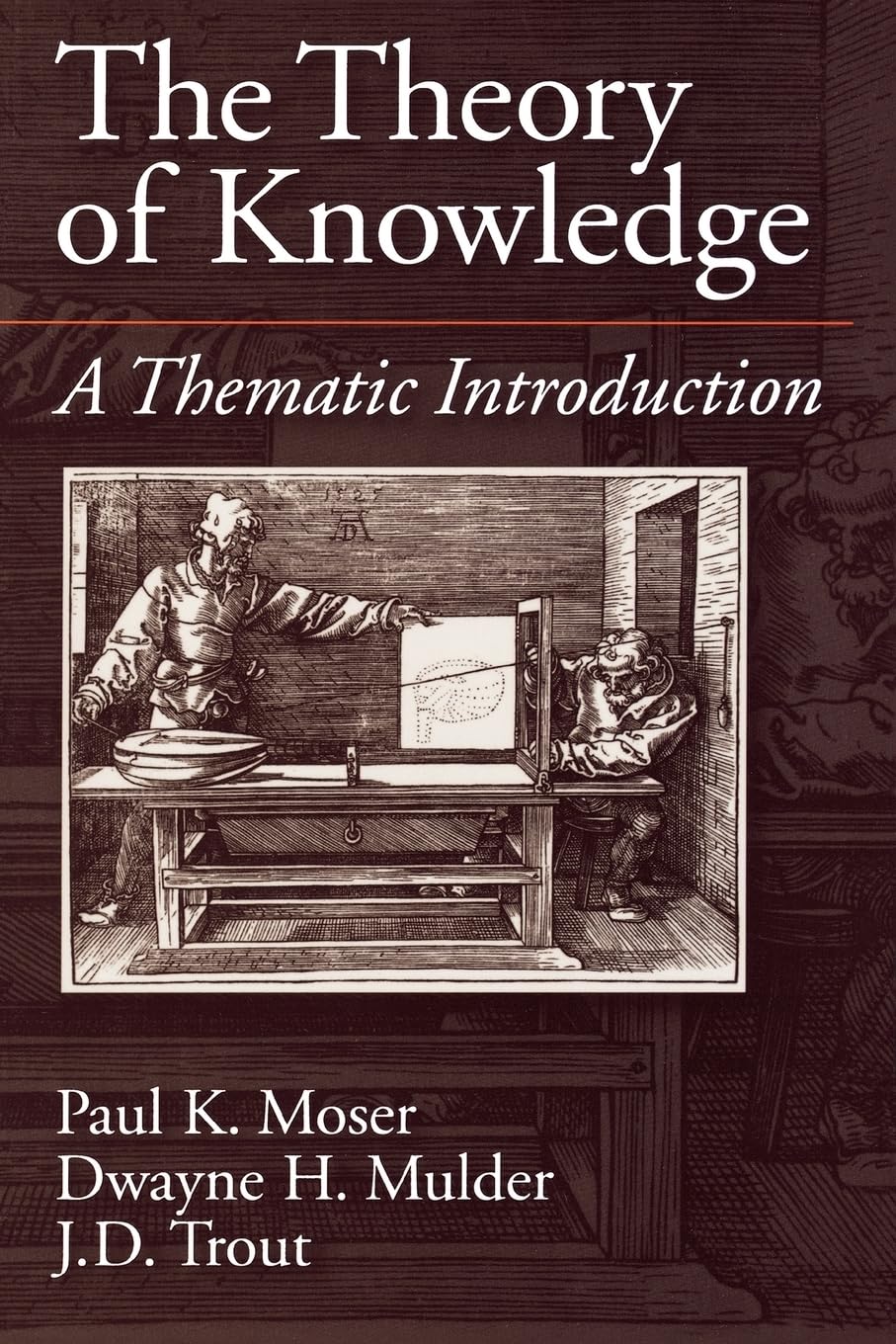
Title

The Theory of Knowledge: A Thematic Introduction (American History),New
Delivery time: 8-12 business days (International)
The Theory of Knowledge: A Thematic Introduction explains the main ideas and problems of contemporary epistemology while avoiding technical detail. Comprehensive and rich in illustrations and examples, it highlights contemporary debates over the definition, sources, and limits of human knowledge, and covers major topics including the nature of belief, theories of truth, epistemic justification, the Gettier problem, skepticism, and epistemic rationality. Its discussions identify important connections between traditional epistemological questions and cognitive science, the history of science, the sociology of knowledge, and crosscultural studies.The book culminates with a focus on questions regarding epistemological method and an examination of the roots of contemporary analytic approaches to epistemology. The authors defend a distinctive position regarding epistemological method, called broad explanationism, that incorporates some insights from naturalism in epistemology. The volume is enhanced by a glossary of important epistemological terms and suggestions for further reading. Easily accessible to beginning students in philosophy, The Theory of Knowledge serves as an ideal text for courses in the theory of knowledge and will also appeal to general readers interested in philosophy.
By changing our most important processes and
products, we have already made a big leap forward. This ranges from the
increased use of more sustainable fibers to the use of more
environmentally friendly printing processes to the development of
efficient waste management in our value chain.
⚠️ WARNING (California Proposition 65):
This product may contain chemicals known to the State of California to cause cancer, birth defects, or other reproductive harm.
For more information, please visit www.P65Warnings.ca.gov.
Shipping & Returns
Shipping
We ship your order within 2–3 business days for USA deliveries and 5–8 business days for international shipments. Once your package has been dispatched from our warehouse, you'll receive an email confirmation with a tracking number, allowing you to track the status of your delivery.
Returns
To facilitate a smooth return process, a Return Authorization (RA) Number is required for all returns. Returns without a valid RA number will be declined and may incur additional fees. You can request an RA number within 15 days of the original delivery date. For more details, please refer to our Return & Refund Policy page.
Shipping & Returns
Shipping
We ship your order within 2–3 business days for USA deliveries and 5–8 business days for international shipments. Once your package has been dispatched from our warehouse, you'll receive an email confirmation with a tracking number, allowing you to track the status of your delivery.
Returns
To facilitate a smooth return process, a Return Authorization (RA) Number is required for all returns. Returns without a valid RA number will be declined and may incur additional fees. You can request an RA number within 15 days of the original delivery date. For more details, please refer to our Return & Refund Policy page.
Warranty
We provide a 2-year limited warranty, from the date of purchase for all our products.
If you believe you have received a defective product, or are experiencing any problems with your product, please contact us.
This warranty strictly does not cover damages that arose from negligence, misuse, wear and tear, or not in accordance with product instructions (dropping the product, etc.).
Warranty
We provide a 2-year limited warranty, from the date of purchase for all our products.
If you believe you have received a defective product, or are experiencing any problems with your product, please contact us.
This warranty strictly does not cover damages that arose from negligence, misuse, wear and tear, or not in accordance with product instructions (dropping the product, etc.).
Secure Payment
Your payment information is processed securely. We do not store credit card details nor have access to your credit card information.
We accept payments with :
Visa, MasterCard, American Express, Paypal, Shopify Payments, Shop Pay and more.
Secure Payment
Your payment information is processed securely. We do not store credit card details nor have access to your credit card information.
We accept payments with :
Visa, MasterCard, American Express, Paypal, Shopify Payments, Shop Pay and more.
Related Products
You may also like
Frequently Asked Questions
- Q: What is 'The Theory of Knowledge: A Thematic Introduction' about? A: This book provides an overview of contemporary epistemology, discussing key ideas and problems without delving into technical jargon. It covers topics such as belief, theories of truth, and skepticism, making it accessible for beginners.
- Q: Who is the author of this book? A: The author of 'The Theory of Knowledge: A Thematic Introduction' is Paul K. Moser.
- Q: When was this book published? A: The book was published on September 11, 1997.
- Q: What is the binding type of this book? A: The book is available in paperback binding.
- Q: How many pages does this book have? A: This edition contains 224 pages.
- Q: Is this book suitable for beginners in philosophy? A: Yes, the book is designed to be easily accessible for beginning students in philosophy.
- Q: What topics does the book cover? A: It covers major topics including belief, theories of truth, epistemic justification, the Gettier problem, skepticism, and epistemic rationality.
- Q: Does the book include a glossary? A: Yes, the book includes a glossary of important epistemological terms.
- Q: What is broad explanationism? A: Broad explanationism is a distinctive position regarding epistemological method that incorporates insights from naturalism in epistemology, which is defended by the authors in the book.
- Q: Is this book suitable for general readers interested in philosophy? A: Yes, it will appeal to general readers who are interested in philosophical discussions on the theory of knowledge.
